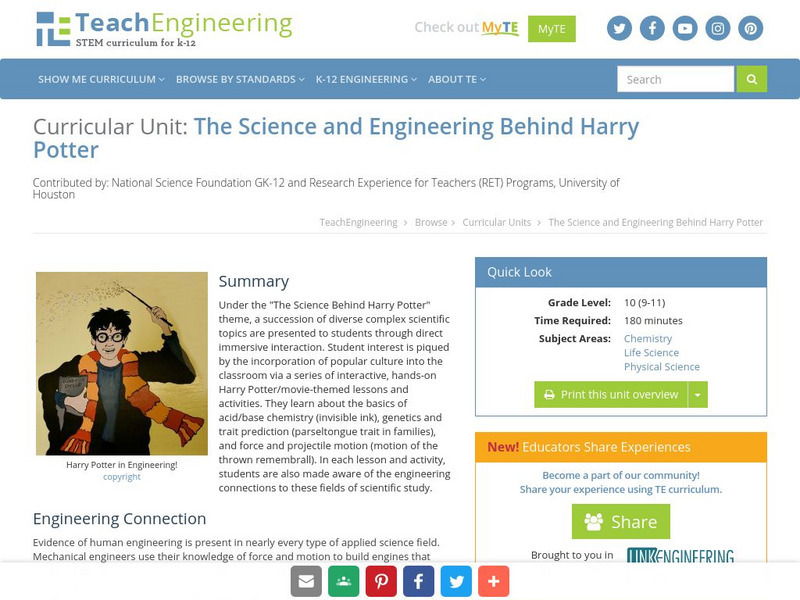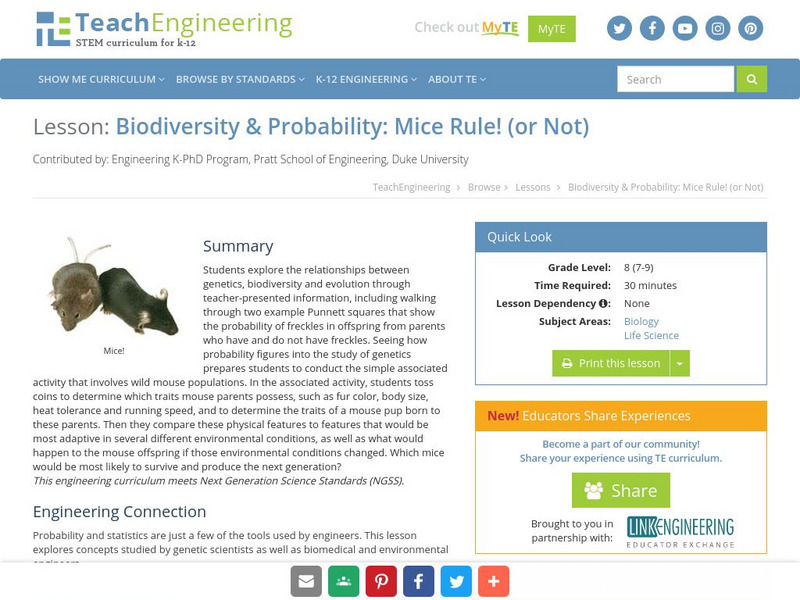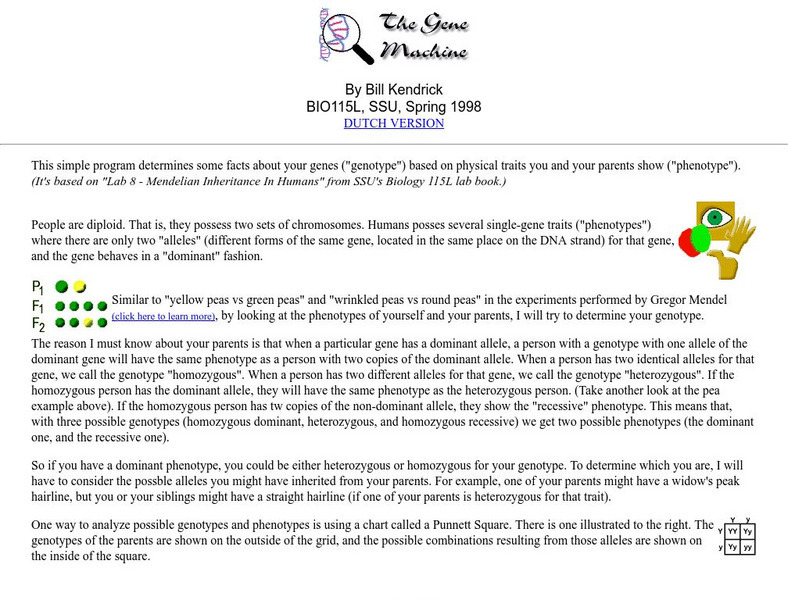National Institute of Educational Technologies and Teacher Training (Spain)
Ministerio De Educacion: La Leyes De La Herencia
In this unit young scholars will identify different kinds of genetic traits and how they are passed on from generation to generation. It contains 18 interactive activities.
Utah State Office of Education
Utah Science: Pass It On!
"Pass It On!" will enhance learning about genetics. Delve into activities addressing traits, DNA, sexual and asexual reproduction.
Washington State University
Washington State University: Learning Mendelian Genetics
A decent lab activity which could be used to introduce the concept of dominance and autosomal dominance. This site provides a coin toss activity to learn about Mendelian Genetics.
Oklahoma State University
Oklahoma State University: Ag in the Classroom: Hairy Heredity [Pdf]
A simulation where students flip coins to mimic how parents pass genetic traits to their offspring through heredity. This activity also illustrates the difference between dominant and recessive genes, and how they interact with each...
TeachEngineering
Teach Engineering: The Benefits of Biodiversity
First, students toss coins to determine what traits a set of mouse parents possess, such as fur color, body size, heat tolerance, and running speed. Next they use coin tossing to determine the traits a mouse pup born to these parents...
American Museum of Natural History
American Museum of Natural History: O Logy: Stuff to Do: What Makes You You?
Launch an activity that will help you address the nature-versus-nurture debate in terms of your own traits.
Genome British Columbia
Genome British Columbia: Multifactorial Inheritance
A simple explanation of multifactorial inheritance is given followed by a short activity where students do a quiz to assess their possible risk of heart disease.
PBS
Pbs Learning Media: Some Genes Are Dominant
This interactive activity, adapted from the Dolan DNA Learning Center, illustrates how Gregor Mendel used purebred yellow and green peas to show that some genes are dominant and others are recessive.
TeachEngineering
Teach Engineering: Engineering Out of Harry Situations
Under the "The Science Behind Harry Potter" theme, a succession of diverse complex scientific topics are presented to students through direct immersive interaction. Student interest is piqued by the incorporation of popular culture into...
TeachEngineering
Teach Engineering: Mice Rule! (Or Not)
Students explore the relationships between genetics, biodiversity, and evolution through a simple activity involving hypothetical wild mouse populations. First, students toss coins to determine what traits a set of mouse parents...
PBS
Pbs: Our Genes/our Choices: The Probabilities of Problems: A Look at Inheritance
Learn how the genes inherited from two parents can be recombined in their offspring in this simulation activity. In addition, investigate the probabilities of passing on inherited genetic disorders.
National Health Museum
Access Excellence: Hardy Weinberg Equilibrium
This site explores what Hardy-Weinberg Equilibrium is, and how teachers can explore this topic in their classrooms. Content includes background information on this topic, as well as numerous learning activities.
Other
Biology Project: The Gene Machine
Site allows users to learn interesting information about their genes based on his/her physical traits. Provides a brief explanation of how a person's genotype is determined.





![Oklahoma State University: Ag in the Classroom: Hairy Heredity [Pdf] Activity Oklahoma State University: Ag in the Classroom: Hairy Heredity [Pdf] Activity](https://d15y2dacu3jp90.cloudfront.net/images/attachment_defaults/resource/large/FPO-knovation.png)






